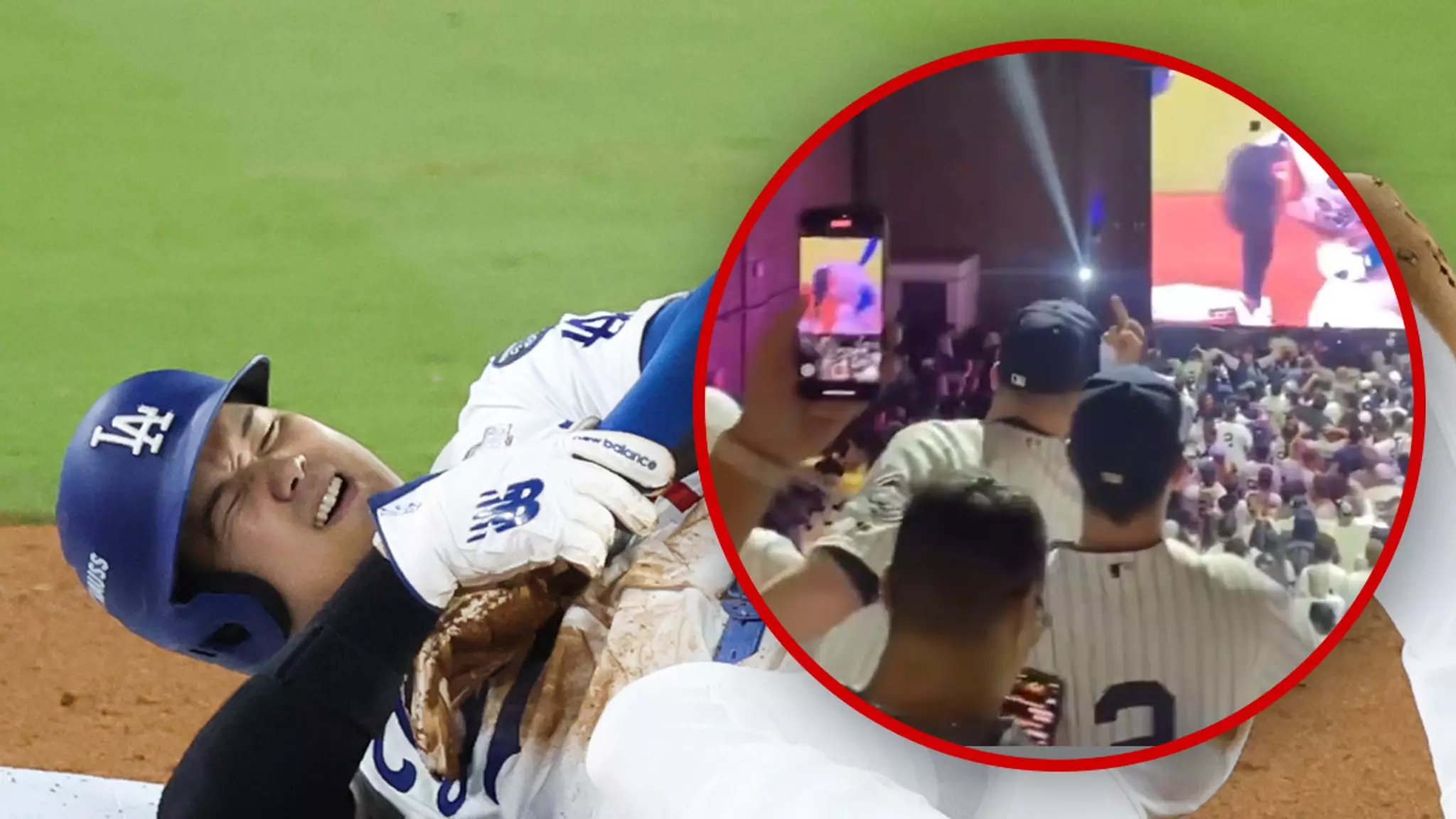The injury of Shohei Ohtani during a recent game at Dodger Stadium has become a focal point for both fans and analysts, sparking widespread discussions about sportsmanship and fan behavior. The incident occurred as Ohtani attempted to steal second base, resulting in a partial dislocation of his shoulder. This injury, labeled a shoulder subluxation, left him visibly in distress and led to a somber atmosphere among players and loyal fans of the Dodgers. However, a contrasting reaction was captured among some Yankees supporters, who seemed more amused than concerned by Ohtani’s painful moment. This disparity highlights a deeper issue within sports culture: the reaction to player injuries and the implications of rival fan rivalry.
Videos circulating from a bar in the Bronx show fans erupting with applause when Ohtani went down, a response that can be both bewildering and disheartening. While sports rivalries are deeply ingrained in American culture, this reaction crosses a line, igniting debates about decency in the face of an athlete’s suffering. One fan notably adds insult to injury by flipping a middle finger toward the screen, an act that encapsulates a toxic element of competitive spirit that often overshadows the integrity of the game itself. The exhilarating highs of victory can unfortunately lead to equally intense lows when it comes to empathy towards opponents in their weakest moments.
The polarized reactions demonstrate the complex relationship fans have with athletes, where admiration can swiftly turn into vindictiveness based on team loyalties. It’s crucial to question the ethics of reveling in an injury. The celebration of a rival player’s misfortune not only speaks to an antagonistic fan culture but also removes the humanity from the equation. After all, athletes like Ohtani invest immense dedication and sacrifice toward their craft, and their injuries symbolize setbacks that resonate beyond mere statistics or team standings.
The Bigger Picture: Recovery and Future Implications
Interestingly, Dodgers manager Dave Roberts expressed optimism regarding Ohtani’s potential return for the next game in the series. This situation underlines a critical aspect of professional sports: the resilience of athletes. While some fans may revel in their downfall, many players thrive under pressure and are often motivated to overcome adversity. As Ohtani gears up for what could be pivotal games, there’s a chance for him to transform this injury narrative into one of comeback and perseverance. The juxtaposition of fan responses to this scenario illustrates a fundamental question: should sports remain merely a battleground for rivalry, or should they also serve as platforms for showcasing human strength and spirit?
While rivalries define the allure of professional sports, they shouldn’t eclipse the principles of sportsmanship and empathy. The incident surrounding Shohei Ohtani not only serves as a reminder of the vulnerability experienced by athletes but also calls on fans to reflect on their own reactions in the face of such adversity. Supporting a team doesn’t necessitate deriding the opposing side; rather, it can include honoring the skill and dedication that athletes put forth, regardless of team affiliations. As discussions about player injuries continue to unfold, it becomes increasingly essential to promote a culture of respect and compassion within the sports community.

